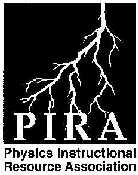Choose a topic in this area:
3A- Oscillations
3B- Wave Motion
3C- Acoustics
3D- Instruments
3E- Sound Reproduction
Choose a topic in this area:
4A- Thermal Poperties of Matter
4B- Heat and the First Law
4C- Change of State
4D- Kinetic Theory
4F- Gas Law
4F- Entropy and the Second Law
-
5 ELECTRICITY AND MAGNETISM
Choose a topic in this area:
5B- Electric Fields and Potential
5C- Capacitance
5D- Resistance
5E- Electromotive Force and Current
5F- DC Circuits
5G- Magnetic Materials
5H- Magnetic Fields and Forces
5J- Inductance
5K- Electromagnetic Induction
5L- AC Circuits
5M- Semiconductors and Tubes
5N- Electromagnetic Radiation
Choose a topic in this area:
6A- Geometrical Optics
6B- Photometry
6C- Diffraction
6D- Interference
6E- Interference
6F- Color
6H- Polarization
6J- The Eye
6Q- Modern Optics
Choose a topic in this area:
7A- Quantum Effects
7B- Atomic Physics
7D- Nuclear Physics
7E- Elementary Particls
7F- Relativity
Choose a topic in this area:
8A- Planetary Astronomy
8B- Stellar Astronomy
8C- Cosmology
Choose a topic in this area:
9A- Support Systems
9B- Electronic
9C- Mechanical
